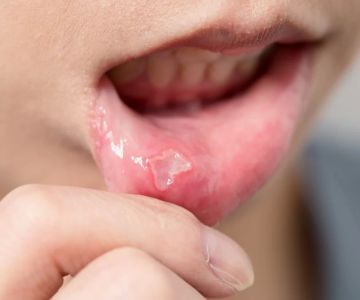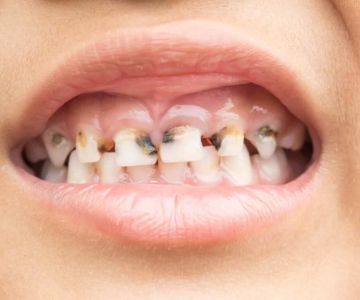
- understanding-clove-oils-power-against-tooth-pain
- step-by-step-how-to-relieve-tooth-pain-with-clove-oil
- safety-precautions-and-what-to-avoid
- real-story-emergency-relief-from-a-wisdom-tooth
- where-to-find-quality-clove-oil-products
1. Understanding Clove Oil’s Power Against Tooth Pain
Clove oil has been used in traditional medicine for centuries, particularly for dental care. The key to its effectiveness lies in a compound called eugenol—a natural anesthetic and antiseptic. Eugenol not only numbs the affected area but also helps reduce inflammation and kill bacteria.
Many people wonder how to relieve tooth pain with clove oil effectively. The answer lies in understanding how this essential oil interacts with nerve endings and infection in the mouth. It’s not a cure for underlying issues like cavities or abscesses, but it's a powerful, natural way to manage pain temporarily until professional dental care is available.
2. Step-by-Step: How to Relieve Tooth Pain with Clove Oil
When used correctly, clove oil can bring significant relief. Here's how to do it:
2.1 Prepare the Area
First, rinse your mouth with warm salt water to remove food particles and bacteria. Pat the affected area dry with a clean cotton swab or tissue. This ensures the clove oil can adhere properly and not get diluted immediately.
2.2 Apply the Clove Oil
Dilute clove oil with a carrier oil (like olive or coconut oil) in a 1:1 ratio. Soak a cotton ball in the mixture and gently place it on the painful tooth or gum area. Leave it for 15–20 minutes. Avoid swallowing the oil or letting it touch the tongue excessively.
2.3 Repeat as Needed
You can apply the diluted clove oil up to 3 times a day. But be cautious—overuse can irritate the mucous membranes. If pain persists for more than 48 hours, it’s time to see a dentist.
3. Safety Precautions and What to Avoid
While clove oil is natural, it is also potent. Undiluted use can cause burns, irritation, or allergic reactions in some individuals.
3.1 Avoid Direct Use on Broken Skin
Never apply clove oil directly to open wounds or ulcers in the mouth. This can increase irritation and delay healing.
3.2 Children and Pregnant Women
Extra caution is advised when using clove oil on children or during pregnancy. Consult a healthcare provider before trying this remedy in these cases.
3.3 Check for Allergies
If you’ve never used clove oil before, do a patch test on your skin before applying it inside the mouth. Reactions like redness or itching suggest sensitivity, and you should not proceed.
4. Real Story: Emergency Relief from a Wisdom Tooth
Michael, a university student, woke up in the middle of finals week with throbbing pain from an impacted wisdom tooth. His dentist appointment was three days away, and the painkillers barely worked. After searching online, he tried clove oil.
With a dab of diluted oil applied carefully to the swollen area, he reported a significant drop in pain within 15 minutes. It became his go-to relief method until he could get professional treatment. This real-life example shows how knowing how to relieve tooth pain with clove oil can make a meaningful difference in urgent situations.
5. Where to Find Quality Clove Oil Products
Not all clove oils are created equal. For best results, choose 100% pure, therapeutic-grade clove essential oil. Avoid synthetic blends or oils with added chemicals. The purity of the product plays a huge role in both its effectiveness and safety.
To save time and ensure you're getting vetted, reliable products, check out the trusted selections at Dentistry Toothtruth. Our team carefully reviews products for quality, effectiveness, and safety so you can use them with confidence.
When pain strikes, clove oil can offer fast, natural relief—if you know how to use it correctly. And that knowledge can turn a desperate moment into manageable calm.







 Westgate Dental Arts
Westgate Dental Arts Coventry Family Dental
Coventry Family Dental Familia Dental
Familia Dental Dr. Daniel S. Fife, DDS
Dr. Daniel S. Fife, DDS Dentistry At Suburban Square: Michael I. Wollock, DMD
Dentistry At Suburban Square: Michael I. Wollock, DMD Comfort Care Dental
Comfort Care Dental The Importance of Oral Health Education During Pregnancy for a Healthy Pregnancy
The Importance of Oral Health Education During Pregnancy for a Healthy Pregnancy Why Skipping Dental Checkups Can Lead to Bigger Oral Health Problems
Why Skipping Dental Checkups Can Lead to Bigger Oral Health Problems Advantages of Porcelain Dental Restorations
Advantages of Porcelain Dental Restorations Best Tips for Brushing Your Teeth Properly for Healthy Gums: Essential Techniques for Oral Health
Best Tips for Brushing Your Teeth Properly for Healthy Gums: Essential Techniques for Oral Health How Can Diabetes Cause Tooth and Gum Problems? Preventing and Managing Oral Health Issues
How Can Diabetes Cause Tooth and Gum Problems? Preventing and Managing Oral Health Issues Healthy Habits for Promoting Good Oral Health and Hygiene: Tips for a Healthy Smile
Healthy Habits for Promoting Good Oral Health and Hygiene: Tips for a Healthy Smile